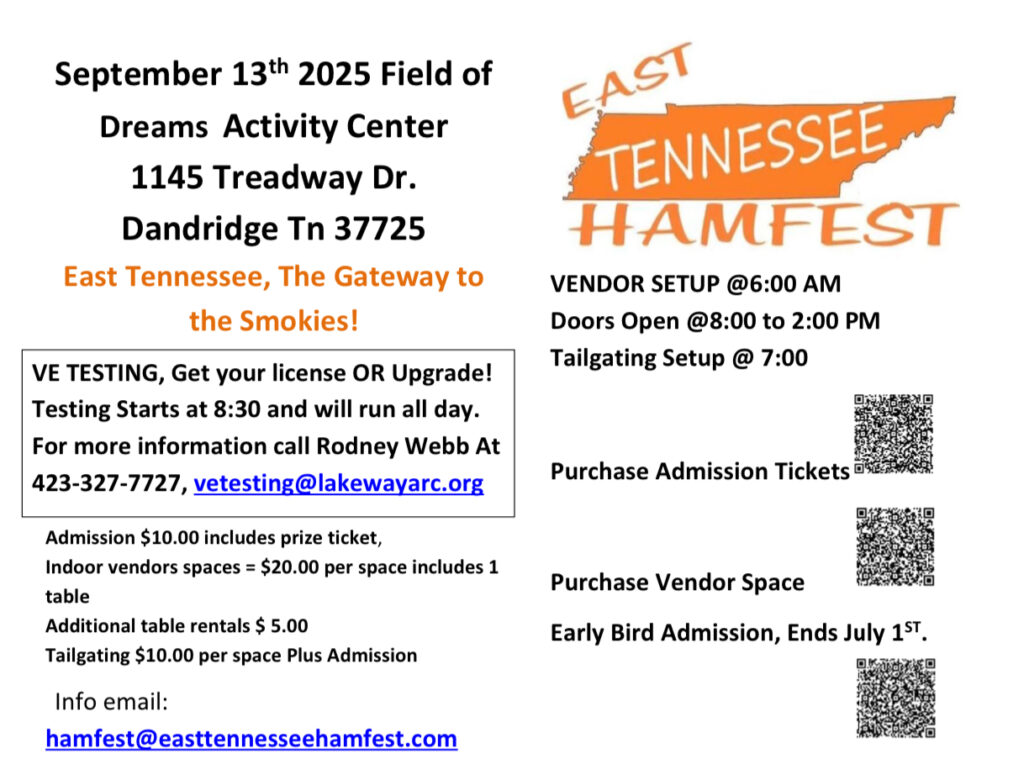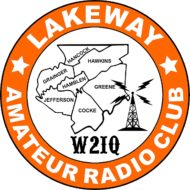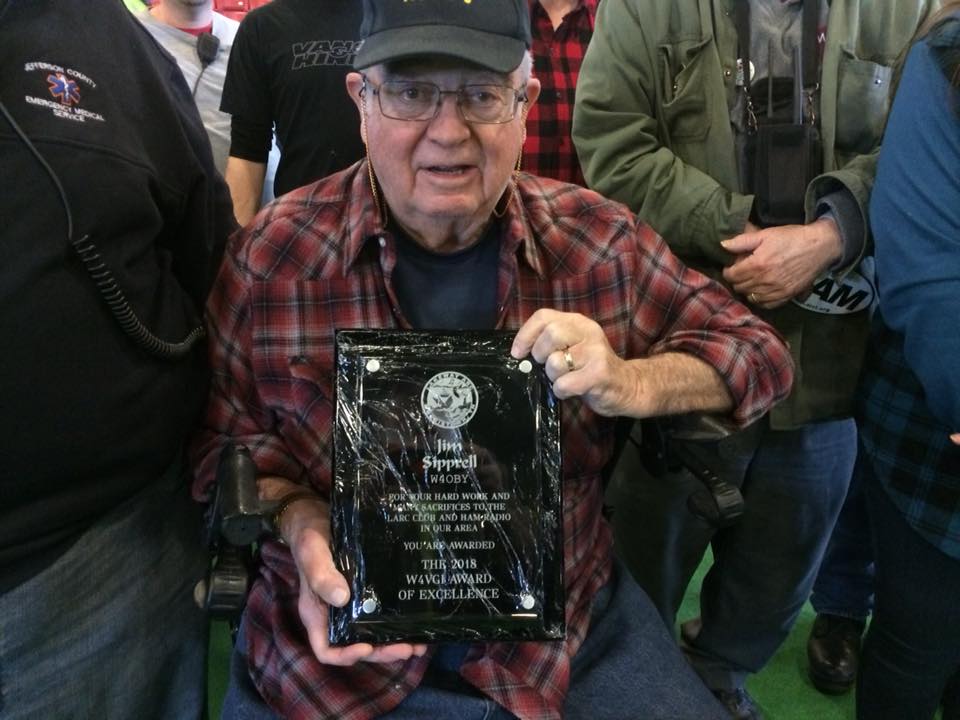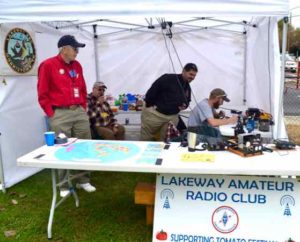March Club Meeting – is the 27th. @ 7:00PM
First Baptist Church Morristown, Meeting Room is off the Jackson Street side of the Building.



We have a Volunteer Examination Team and we run online testing for Amateur Radio FCC licensing. We are ARRL accredited.
Video Supervised F.C.C Amateur Radio License Exam Sessions are available every Saturday Evening, follow the link to sign up!
http://www.hamonlinetests.com/
See the 8-Day Contest Calendar for upcoming Contest!
https://www.contestcalendar.com/weeklycont.php

Congrats Jim
Amateur Radio is a great hobby that helps to bring people together, learn about technology, make new friends, and have fun with radio.
LARC is dedicated to supporting Amateur Radio in the Lakeway Area. On our website, you’ll find information on how to get started, what the hobby has to offer, news and help with amateur radio training.

It’s our mission to help people in our surrounding area discover what amateur radio has to offer, and to support the various local clubs and groups. Our desire is to see amateur radio grow, We Promote and Explaining Amateur Radio, raising awareness, and encouraging people to get involved, We support our area and hobby by offering help and advice to new radio amateurs. We share by supporting the various amateur radio activities, clubs and training in the Lakeway area.
- Getting started with amateur radio involves several steps. Here’s a detailed guide to help you get started:
- Research and Learn: Familiarize yourself with amateur radio by reading books, magazines, and online resources.
- Study for the License Exam: To operate an amateur radio station in the United States, you need a license from the Federal Communications Commission (FCC). Choose a license class from technician, general or amateur extra, and check the current question pool and exam dates. Find a study material that suits your learning style, such as books, videos, apps or flashcards.
- Take the License Exam: Find an exam location and date from one of the volunteer exam coordinator groups, ARRL.
- Obtain Your Call Sign: After passing the exam, you will be assigned a call sign.
- Choose Your Equipment: Get a radio, preferably a handheld one, and learn how to use it and improve it with better antennas or accessories2.
- Set Up Your Station: Once you have your equipment, you can set up your station.
- Learn Operating Procedures and Etiquette: It’s important to understand the proper procedures and etiquette when operating your radio.
- Get On the Air: Now that you’re set up, it’s time to start communicating.
Remember, the world of amateur radio is vast and there’s always something new to learn. Enjoy your journey into this fascinating hobby!
- April Club Meeting – Cross Band Repeat
- QRP Operator Logs
- Put Ham Radio on your list of New Year’s Resolutions
- HEATKIT BOOKS
- ARRL Learning Network
- Amateur Radio in the News
- Monthly Zoom Meeting for Collegiate Clubs
- Online Examinations and Remote Testing
- ARRL NEWS
- 13 Colonies Special Event
